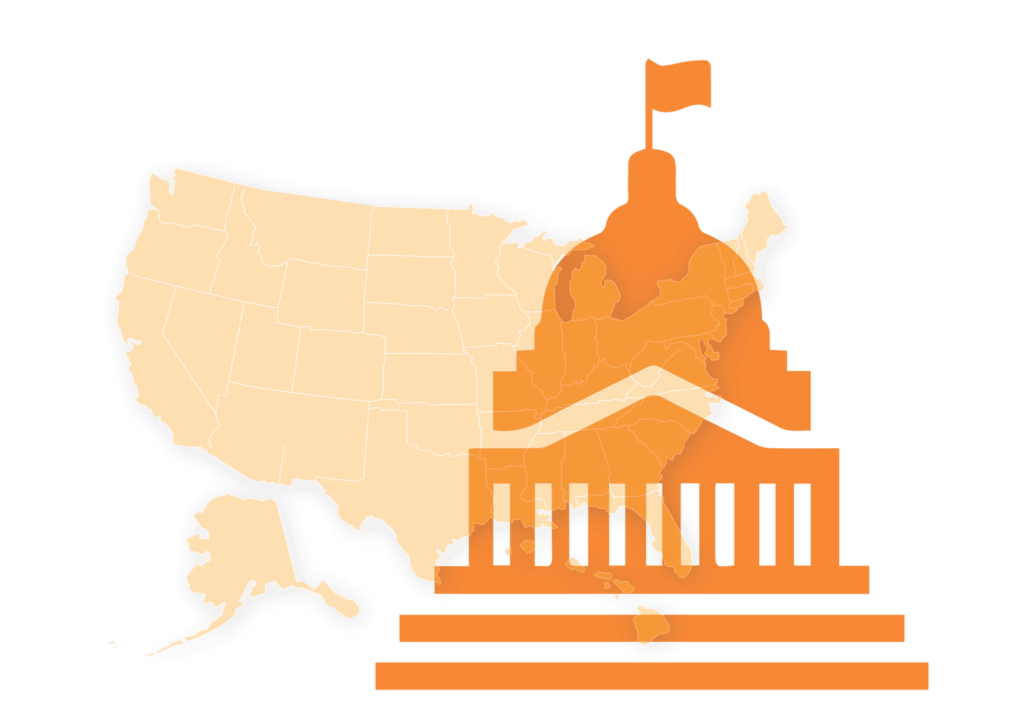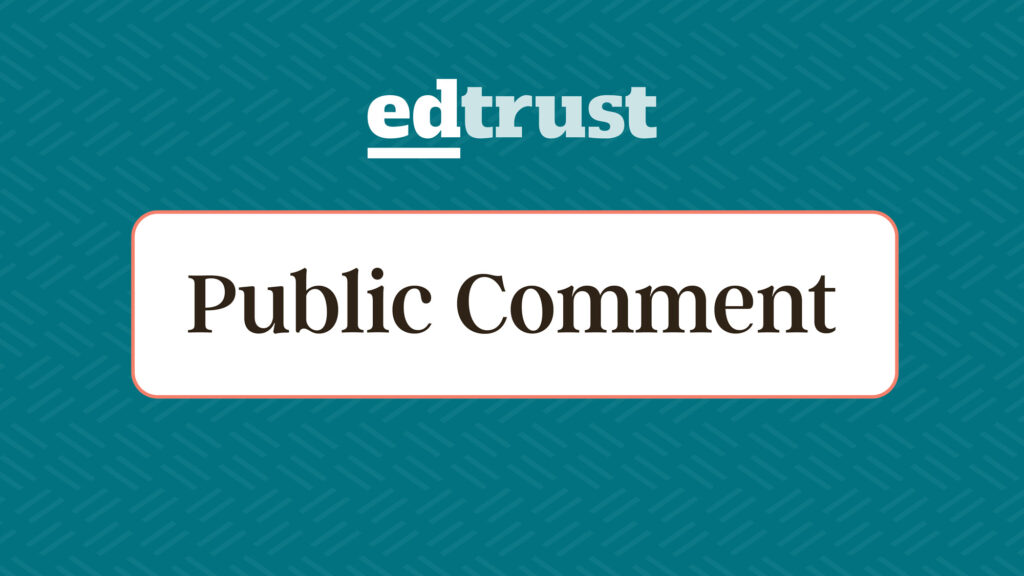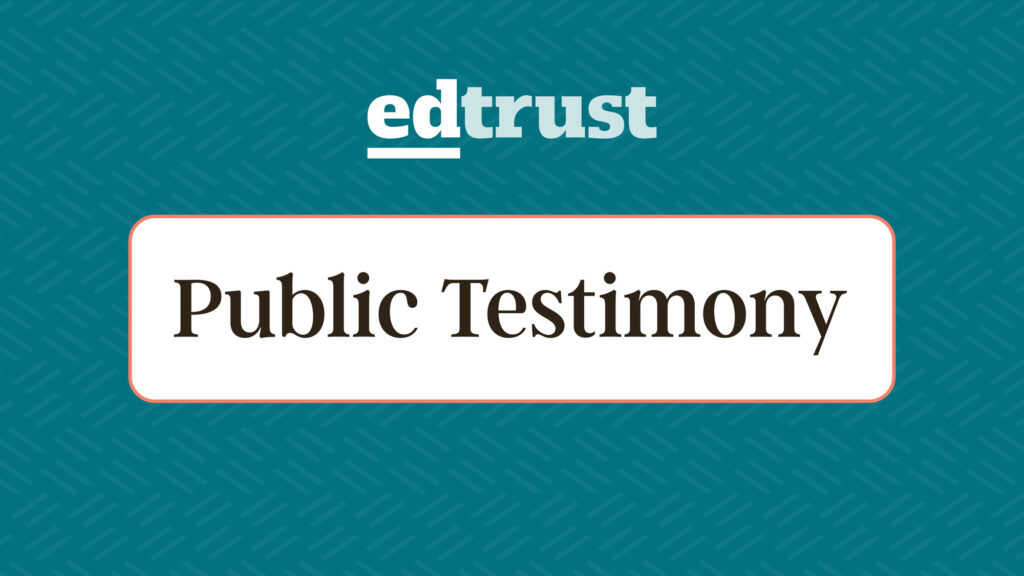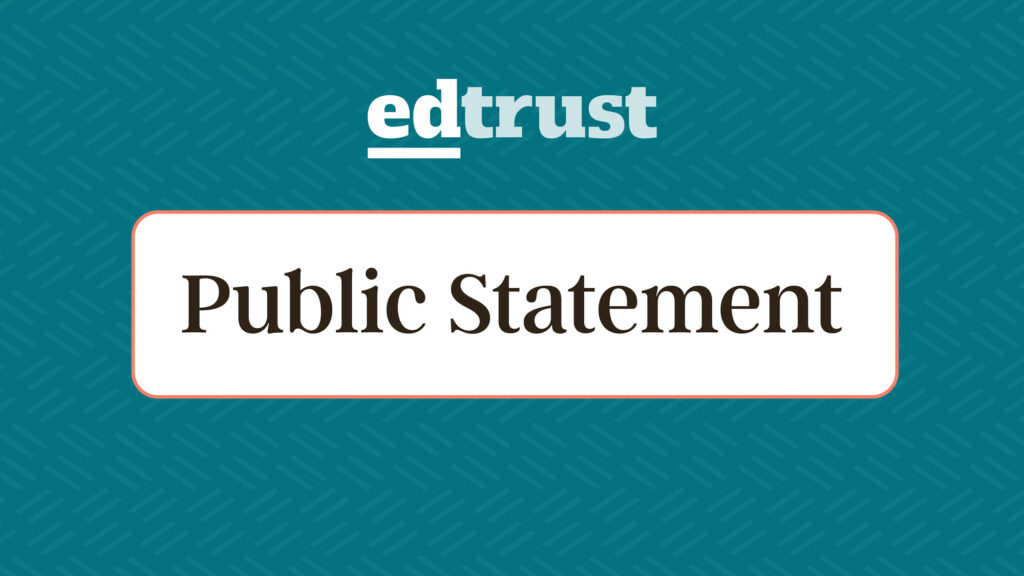James Kvaal
Under Secretary of Education
United States Department of Education
400 Maryland Avenue, SW
Washington, DC 20202
Dear Under Secretary Kvaal,
We, the undersigned education organizations, write to share our recommendations for distributing the $5 million appropriated for Postsecondary Student Success Grants in the Fiscal Year 2022 (FY22) omnibus. There is growing evidence of the effectiveness of college completion strategies to get more students across the finish line. This new program presents an opportunity for the Department of Education (“The Department”) to advance higher education equity by replicating and scaling evidence-based approaches to increasing college completion, particularly for those students facing the greatest barriers to a postsecondary credential. Please see below our recommendations for how best to do that, and we look forward to collaborating with you.
Principles
- We support broad eligibility for two-year and four-year public colleges and universities, plus private HBCUs.
- Due to the extremely limited amount of funds currently available, this initial grant process should be targeted toward institutions serving the largest percentage of Pell students, though our hope is this investment will expand over time to a broader array of institutions.
- We support limiting the use of funds to a) expanding a proven program to a new institution (replicating); or b) growing an existing proven program to serve additional students on the same campus (scaling).
- We support a programmatic focus on supporting students facing the greatest barriers on the path to a postsecondary credential: underrepresented students of color, including Black, Native, and Latino students; students eligible for Pell Grants; and first-generation students.
Eligible entities
- As indicated above, we support making grants directly to two-year and four-year public colleges and universities, plus private HBCUs.
- We support allowing colleges to apply individually, as a system, or as a consortium.
- We encourage the creation of partnerships with public state and local agencies and/or nonprofit organizations for program administration, technical assistance, and/or evaluation, but would not require them.
- We support the Department convening pre-application workshops where IES or external experts present information and offer support to ensure evidence-based practices are present within their applications.
- We would support actions by the Department to encourage Minority-Serving Institutions (MSIs) and community colleges to apply.
Grant numbers and sizes and budget expectations
- We support issuing a smaller number of larger awards — four to six total.
- We support a minimum award of $750K and a maximum award of $1.5M.
- We support permitting up to 15% of funds for public agencies and/or nonprofits that support the project.
- We would consider the requirement of a financial match only if the Department can construct it broadly enough to not constrain low-resource institutions from participating.
- We support using the entire $5 million investment for grant awards and using other Department resources (such as the set-aside allowable in the FY22 appropriations bill) or philanthropic funds to evaluate the replicated and scaled programs.
Eligible activities / uses of funds and application scoring
- We recommend the Department fund only evidence-based college completion programs that meet the top three tiers articulated by the Education Innovation and Research (EIR) program, with a priority for interventions included in the postsecondary section of What Works Clearinghouse.
- We support requiring reporting on implementation and outcomes disaggregated by various relevant student characteristics (race/ethnicity, Pell status, full- vs. part-time enrollment, year of high school/equivalency, age, gender, etc.) and that interventions be focused on closing equity gaps for:
- underrepresented students of color;
- students eligible for Pell Grants; and/or
- first-generation students.
- We support a process that yields a diversity of institutions winning awards (student demographics, geography, two-year and four-year colleges), including low-resource institutions. This could mean separate competitions or one competition with set-asides. It could mean priority points for MSIs.
- We support rewarding applicants for:
- Using data to identify and re-engage students who stopped out during the pandemic and using proven strategies to assist them in completing their credentials;
- Activities with greater impact on college persistence and completion that are achieved at comparatively lower cost that satisfy higher tiers of evidence under EIR;
- For applicants seeking scaling awards: evidence of impact thus far and evidence of institutional support to continue and/or grow successful interventions.
Timing
- We support grantees both receiving funds by December 31, 2022, under current FIPSE guidelines, and being required to allocate those funds by December 31, 2025.
Transparency
- We support the Department making all non-private program-related data, such as applications, project budgets, annual performance reports, and close-out reports, publicly available in accessible formats with the ability to disaggregate by grantee, intervention type, student population, etc., for the public to learn from.
Thank you for your consideration. Please do not hesitate to reach out with any questions or concerns.
Sincerely,
America Forward
American Association of Community Colleges
Association of Community College Trustees
Association of Public and Land-grant Universities
Center for American Progress
Excelencia in Education
Higher Learning Advocates
Institute for Higher Education Policy (IHEP)
New America Higher Education Program
Results for America
State Higher Education Executive Officers Association
The Education Trust
The Institute for College Access and Success (TICAS)
Third Way
UnidosUS






 August 28, 2025 by
August 28, 2025 by 
